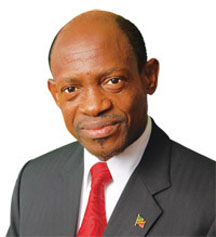The Caribbean Community (CARICOM) says it is concerned about the loss of lives in Libya as the Colonel Muammar Gaddafi government battles rebel forces seeking to end his more than four decades in power.
CARICOM Chairman, Dr Denzil Douglas, who is also the Prime Minister of St Kitts and Nevis told the Caribbean Media Corporation (CMC) that the region is also concerned at the prolonged nature of the conflict, said a release from the Office of the Prime Minister in Basseterre, St. Kitts.
Dr Douglas noted also that the situation in Libya provides a lesson in democracy for the Caribbean.

“We had used occasions to express our concerns, as the heads of government when we met in Grenada as a Community in Grenada and again in July in St Kitts and Nevis. We basically said that we wanted the conflict to come to an end,” Dr Douglas is quoted as telling CMC from El Salvador where he had been attending the CARICOM/Central American summit.
“CARICOM would like to reiterate that position as the forces in opposition assemble in Tripoli. We also want the leader of the Libyan government to recognise that the end is apparently very near and in order to prevent further loss of lives that there is now need for him to now relinquish and speak and talk and even discuss how this conflict can come to an end without further bloodshed.”
Dr Douglas also called on the Chairman of the National Transitional Council Mustafa Abdul Jallil to respect the human rights of Libyans as his rebel forces move towards Tripoli.
“We believed that this is no time for revenge, this is time for all forces, all peoples, and all tribes to come together and see if the country could settle down as quickly as possible with a government that represents all of the people of Libya,” he added.
Dr Douglas said that the situation in Libya provides a lesson in democracy for the Caribbean.
“We have seen in countries where democracy has been absent, where people have been yearning for full freedom of expression from the government that they would want to represent then, and eventually this has led to bloodshed as we have seen over the last six months in various Arab countries.”
Dr Douglas said the rest of the world, especially the developing countries, can learn much from what “we here in this part of the world have been pursuing all of our own lives in respecting our people and governments.
“We believed that democracy must be pursued vigorously and must be sustained by whatever it takes at all times,” he told CMC.





